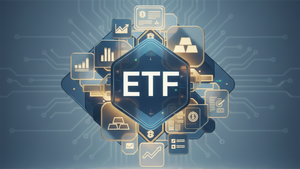
Online betting is a large and fast-growing business: as of 2023 the U.S. online gambling market was estimated to have revenue of around $11 billion, with an industry-wide compound annual growth rate through 2030 of an impressive 12%. The majority of American adults (55%) participated in at least one form of gambling in the last year and placed around $120 billion in legal sports bets. And online betting is increasingly popular as it becomes widely legalized throughout the U.S.
With so much potential for growth in the industry, online betting companies like DraftKings Inc. (NASDAQ: DKNG) and South Korean firm DoubleDown Interactive Co. Ltd. (NASDAQ: DDI) are jostling for dominance and market share. There are significant differences between these two firms—DraftKings has a market capitalization of over $31 billion, many times that of DoubleDown at around $700 million, for example, and they focus on sports betting and casual mobile gaming, respectively—but in an industry that is rapidly shifting each offers both draws and potential barriers for investors.
DraftKings: Strong Market Share, Dominant Technology, Thorny Regulatory Landscape
As one of the oldest online betting companies—it launched in 2012, years before the 2018 Supreme Court decision that allowed states to authorize online sports betting individually—DraftKings has built a position as a major player in the U.S. sports betting market. Together with rival Flutter Entertainment plc (NYSE: FLUT), the parent company of FanDuel, DraftKings enjoys the majority of market share in this country.
One of the keys to DraftKings' success has been its size and influx of revenue, as the firm reported second-quarter revenues of $1.1 billion, a 26% year-over-year improvement driven by both continued engagement from existing customers and new customer business.
DraftKings also aggressively expands its offerings and strengthens its position as a technological leader in the space through acquisitions. In late August, it announced plans to acquire B2B micromarket pricing company Simplebet, a company that utilizes machine learning and automation to supplement the betting experience for customers. While this expansion strategy has meant periods of net losses—it reported net losses attributable to shareholders of $78.7 million in the latest quarter, an improvement of nearly $475 million in net losses one year previously—it has effectively squeezed many would-be competitors out of the market.
DraftKings offers sports betting in 25 states and Washington, D.C., and it must contend with a varied set of regulations as it continues to expand its offerings. This has implications for its financial position: in its latest quarterly report, DraftKings reduced its fiscal 2024 adjusted EBITDA guidance range to between $340 million and $420 million, down from a range of $460 million to $540 million, in part because of a tax rate change in Illinois.
DoubleDown Interactive: Small in Size, But Impressive Fundamentals
In the second quarter, DoubleDown's revenue climbed by over 17%, an impressive achievement in a landscape in which social casino gaming is declining but nonetheless growing at a slower pace than DraftKings. DoubleDown's revenue growth was also fueled in part by acquisitions, including last fall's acquisition of iGaming technology firm SuprNation, but it rose also thanks to a 27% surge in average revenue per daily active user.
DoubleDown's strengths also include operational efficiency. In the latest quarter, it lowered sales and marketing expenses year-over-year, driving net margins of 34.9%. Thanks to free cash flow of $34 million, it ended the quarter with over $300 million in cash and cash equivalents.
The firm may be undervalued thanks in part to its small size and relative obscurity compared with larger rivals. It enjoys a forward P/E ratio of 6.0 and a P/B ratio of 0.9.
DKNG vs. DDI: Two Solid Options
In the past year, DraftKings shares are up just under 18% while DoubleDown stock has risen nearly 45%. What's more, analysts view both DraftKings and DoubleDown as solid options with plenty of upside potential: average price targets project 39% upside for DraftKings and 43% for DoubleDown.
Key distinctions between the companies could drive investors to one or the other, including overall size and market type and the fact that DoubleDown has maintained profitability while DraftKings has spent more heavily to grow.





